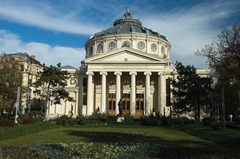Immigration restrictions ended
 From 1 January, Romanian and Bulgarian nationals have been free to work in the UK without a work permit. The move was required under EU rules but has caused considerable unease among the public: 7.3 per cent of the Northern Irish workforce is currently unemployed.
From 1 January, Romanian and Bulgarian nationals have been free to work in the UK without a work permit. The move was required under EU rules but has caused considerable unease among the public: 7.3 per cent of the Northern Irish workforce is currently unemployed.
The UK had imposed restrictions on immigration from the two countries when they joined the EU in 2007. However, no restrictions were introduced in the Republic. The open land border allows migrants to travel relatively freely across Ireland.
In the 2011 censuses, 1,094 Romanians were living in Northern Ireland and 17,995 were living in the Republic. Meanwhile, there were 649 Bulgarians in Northern Ireland and 1,783 south of the border.
Under new rules, EU migrants can only apply for jobseeker’s allowance if they have been resident in the country for the three months. Jobseeker’s allowance payments will be ended after six months if the migrant cannot prove that they have an offer of work. The Government also plans to exclude new EU migrants from housing benefit and has the power to deport migrants who are found to be begging or sleeping on the streets.
Sinn Féin opposes restrictions on Bulgarian and Romanian migration, describing them as “cosmetic and reactionary”. Alliance’s Stephen Farry said that there was “far too much scaremongering over immigration.” UUP MEP Jim Nicholson commented that immigration “can bring cultural diversity and economic growth” but a “benefits tourism” mind-set needed to be challenged.





